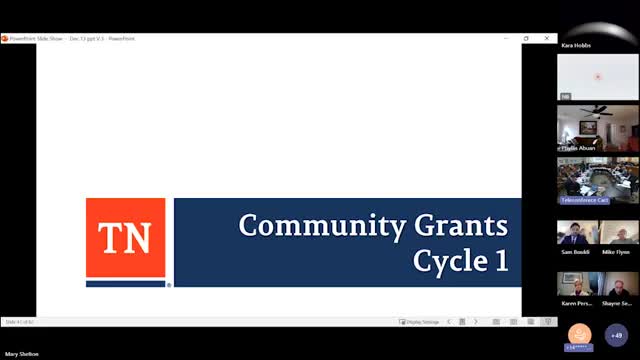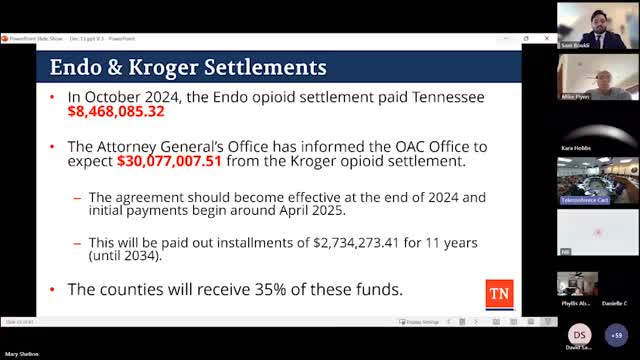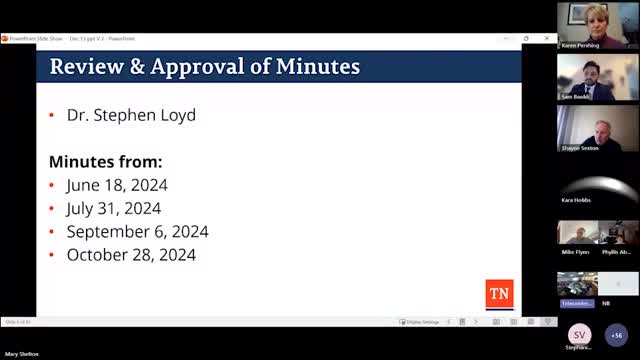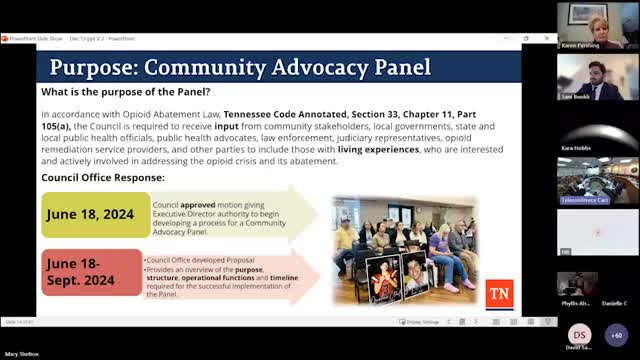Article not found
This article is no longer available. But don't worry—we've gathered other articles that discuss the same topic.

Council approves 2024 cycle-1 rollover policy, declines UT Memphis 10-year endowment contract and launches community grant dashboards

Council reports Endo and Kroger settlements, trust-fund balance; approves new quality director position

Council authorizes negotiations with Smart Initiative and creates working group to assess county payment of consulting fees

